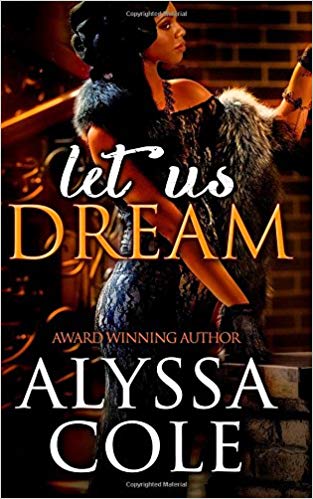 Let Us Dream is another slim but packed novel like Cole’s Let It Shine—and it’s equally good. This one’s set 50 years earlier, in 1917 Harlem. The heroine is Bertha Hines, a cabaret owner who has a secret that keeps her constantly nervous and a past that keeps her fairly buttoned-up. Amir Chowdhury is a Muslim Indian in the U.S. illegally, trying to make his way.
Let Us Dream is another slim but packed novel like Cole’s Let It Shine—and it’s equally good. This one’s set 50 years earlier, in 1917 Harlem. The heroine is Bertha Hines, a cabaret owner who has a secret that keeps her constantly nervous and a past that keeps her fairly buttoned-up. Amir Chowdhury is a Muslim Indian in the U.S. illegally, trying to make his way.
Bertha isn’t satisfied with the status quo at all and is trying to participate in the suffragette movement, but the white women who run it aren’t welcoming to a black woman cabaret owner (ostensibly because of her career choice, but probably really because of her race). So instead she educates her employees on politics and encourages them to advocate for the vote for women among their male clientele.
Amir is an experienced cook, but his options are limited because of his status, so he ends up washing dishes at Bertha’s establishment. They butt heads early on. However, they find they each have something the other needs—Bertha can teach him about American politics and he can teach her how to dance more authentically (she does an Indian-inspired dance for the club). Working closely together brings their simmering attraction to the forefront. And when Amir and Bertha help one of Bertha’s employees give birth, they bond over the moment and realize there really is something between them.
But it’s not easy. Bertha’s got the police wanting to shut her down and Amir’s illegal—and they’re not even the same race. That last point was an interesting one for me—could they even marry (or were the laws written solely to protect the “purity “—ugh—of whites?)? Because nowadays, they could marry and Amir could come in legally (I mean, it would take some work, but could be done). But I wasn’t sure how it would work back then. Cole doesn’t even go there, but it didn’t stop me from wondering.
There are some fairly heartbreaking moments, like when Amir sees a white man outside the club and instinctively calls him “sir.”
He cringed at how the honorific slipped out. Why should he call some White man lounging in an alley like an urchin “sir”? The only power that the man held over him was the color of his skin, but that was all that was necessary in America, it seemed. Back home, too, now.
Overall, this is a nice book. Not too steamy but full of interesting historical details in another period you don’t see much (especially in romance). If you liked Let It Shine, definitely check this one out, or if you’re just curious about a different time.